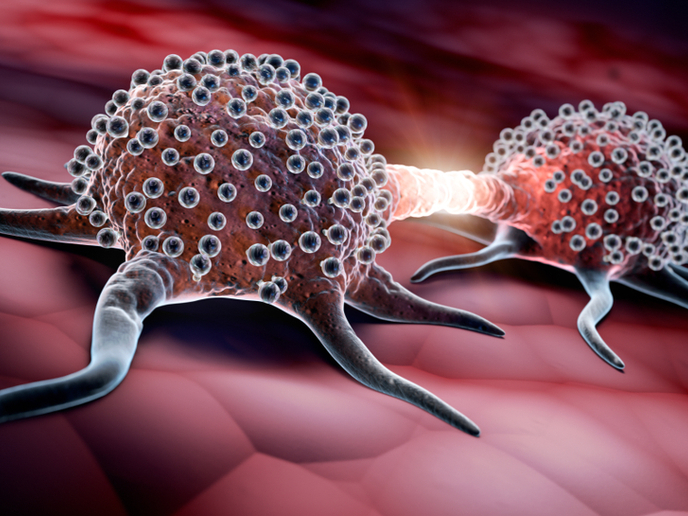DNA damage and human cancer development
One form of DNA damage is the creation of etheno DNA adducts. Etheno DNA adducts are created after the DNA bases have been attacked by highly reactive endogenous intermediate metabolites or exogenous environmental agents. The generated etheno adducts interfere in the natural base-to-base interactions. As a result, an increased numbers of point mutations are introduced to the cell. It is believed that these mutations cause changes in gene expression or interrupt some cell signalling cascades, leading to the onset of malignancies, neurodegenerative diseases and aging processes. A multinational research project has been set to study the mechanisms of etheno adduct formation, the inducing agents and the endogenous repair systems. Mutational analysis on rodent and Drosophila genotypes, treated with etheno adduct generating agents, have shown preferential mutagenic effect on specific genes and have indicated putative existing repair pathways that can remove the etheno adducts and restore DNA properties. Enzymes that are involved in those pathways have been identified and functional studies are in progress. The scientists have used newly developed methods for measuring the etheno DNA adducts in human tissues. Research studies with rodents and humans have revealed links between the levels of etheno adducts and dietary profiles. Lipid metabolism and uptake have been shown to generate etheno DNA adducts in vivo. A relationship has been found between elevated levels of etheno adducts and patients with colon cancers, chronic inflammations and metal storage diseases. Since the DNA damage probably occurs in the initial stages of the diseases, etheno DNA adducts can be used as markers to identify high-risk patients, before any clinical symptoms appear. Early diagnosis will make possible an improved prevention and treatment of the disease. Further studies on the DNA damage and repair pathways could lead in the development of new therapies to enhance the natural defence systems of the cells.







